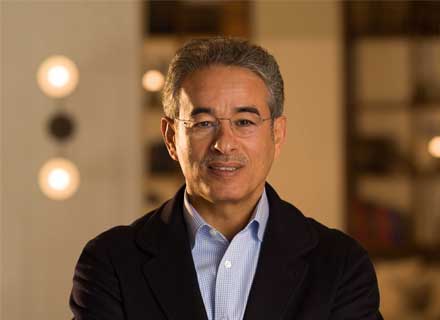Emaar Properties (Emaar) is a property developer in Dubai. The business engages in real estate development, management, and investing. It provides a broad range of services, including banking, property management, real estate investment, and development services. It creates and offers for sale condos, villas, houses, shopping malls, hotels, offices, resorts, rental properties, and land.
The company is known for developing Burj Khalifa, the tallest building in the world and the Dubai Mall. Other than the UAE, the company is present in Saudi Arabia, India, Pakistan, Turkey, Lebanon, Jordan, Italy, Syria, Morocco, Egypt, and the United States.
Emaar Properties is a publicly traded joint stock company that is traded on the Dubai Financial Market. As of June 2021, its market value was USD 15.5 billion. Emaar has a combined presence in 36 markets across the world, thanks to its six business sectors and 60 active firms.
Emaar Properties generated criticism in 2021 and 2022 when their Marassi project on Egypt’s Mediterranean coast led to substantial environmental harm and extensive beach erosion.
Emaar departed from the construction plans approved by Egyptian authorities for their project, causing unanticipated environmental degradation of the nearby beaches. Emaar was seen to ignore those concerns and carry on with their damaging project activities.
Amid all the controversy, the Emaar subsidiary ‘Emaar Hospitality Group’ expanded its hotel and housing activities to Bahrain and Nigeria. The King Abdullah II Fund for Development’s initiatives has included the construction of the Beit Misk in Lebanon, the Jeddah Gate in Saudi Arabia, and the Samarah Dead Sea Resort in Jordan.
The brain behind this successful venture is Mohamed Alabbar, an Emirati businessman and the founder of Emaar Properties.
-
Who is Mohamed Alabbar?
- Mohamed Alabbar was born on November 8, 1956 in Dubai, UAE and is the eldest of 12 children in his family
- He completed his graduation degree from Seattle University in Business Administration in 1981
- Soon after college, Mohamed Alabbar started off his career with the Central Bank of the United Arab Emirates as a banking manager and then worked for the UAE government as the founding director general of the Department of Economic Development (DED)
- Later in his career, he established a close relationship with Sheikh Mohammed bin Rashid Al Maktoum, the Ruler of Dubai, and became his chief economic adviser
- Mohamed Alabbar worked with Sheikh Mohammed bin Rashid Al Maktoum to advance the expansion and improvement of Dubai’s tourism business and its international standing
- In 1997, he founded Emaar Properties, holding 24.3% of shareholders of the company and the rest owned by the Dubai government
- In 2016, Mohamed Alabbar co-founded Noon.com, an e-commerce company with a value of USD 1 billion
- He is also the chairman of Eagle Hills, a UAE-based real estate development company and serves on the board of Emaar Malls
- In 2010, FDI magazine awarded Mohamed Alabbar the ‘Middle East Personality of the Year’ and he was ranked fifth in ‘The World’s Most Influential Arabs’
- According to the Bloomberg Billionaires Index, as of January 2023, Mohamed Alabbar’s net worth is around USD 1.3 billion dollars
‘High Level Of Demand For Bond Offerings From Dubai’
In an interview with Oxford Business Group, Mohamed Alabbar talked about Dubai’s growing economy after the COVID pandemic and the Russia-Ukraine war.
“Dubai has an open and internationally integrated economy. As such, like many other economies, the emirate was affected by the COVID pandemic and war crisis. However, Dubai has proven to be strong and resilient, and by focusing on key drivers – such as trade, tourism and logistics – the economy grew by 3.4% in 2022. This was slightly lower than the UAE national economy, which posted growth of 4.9%, according to the IMF, and is poised for continued expansion in 2023,” he said, Oxford Business Group reported.
“It is important to note that, in Dubai, some state-owned and government-related enterprises that were in need of being restructured have been reorganised successfully, but this has not necessarily been across the board. For example, only two out of the more than 40 companies in the entire Investment Corporation of Dubai portfolio were involved in a restructuring process,” Mohamed Alabbar added.
“Today, the high level of demand for bond offerings from Dubai – from both the global and regional financial markets – demonstrates the level of international investor confidence in the city. That speaks very clearly of Dubai’s fiscally responsible approach to funding its future long-term growth,” he concluded.

